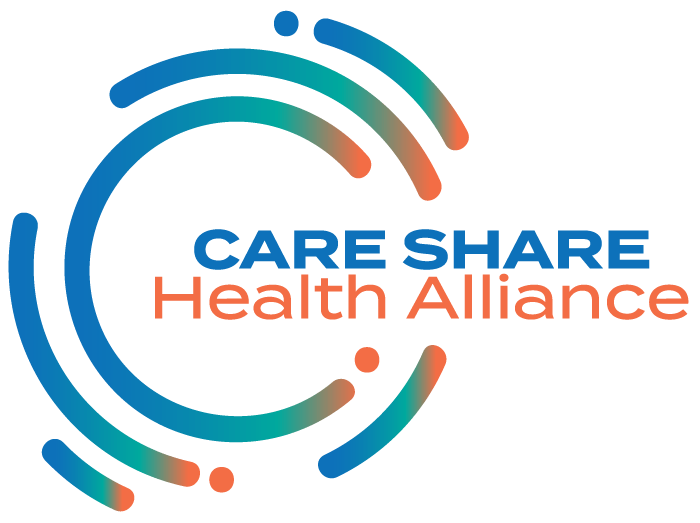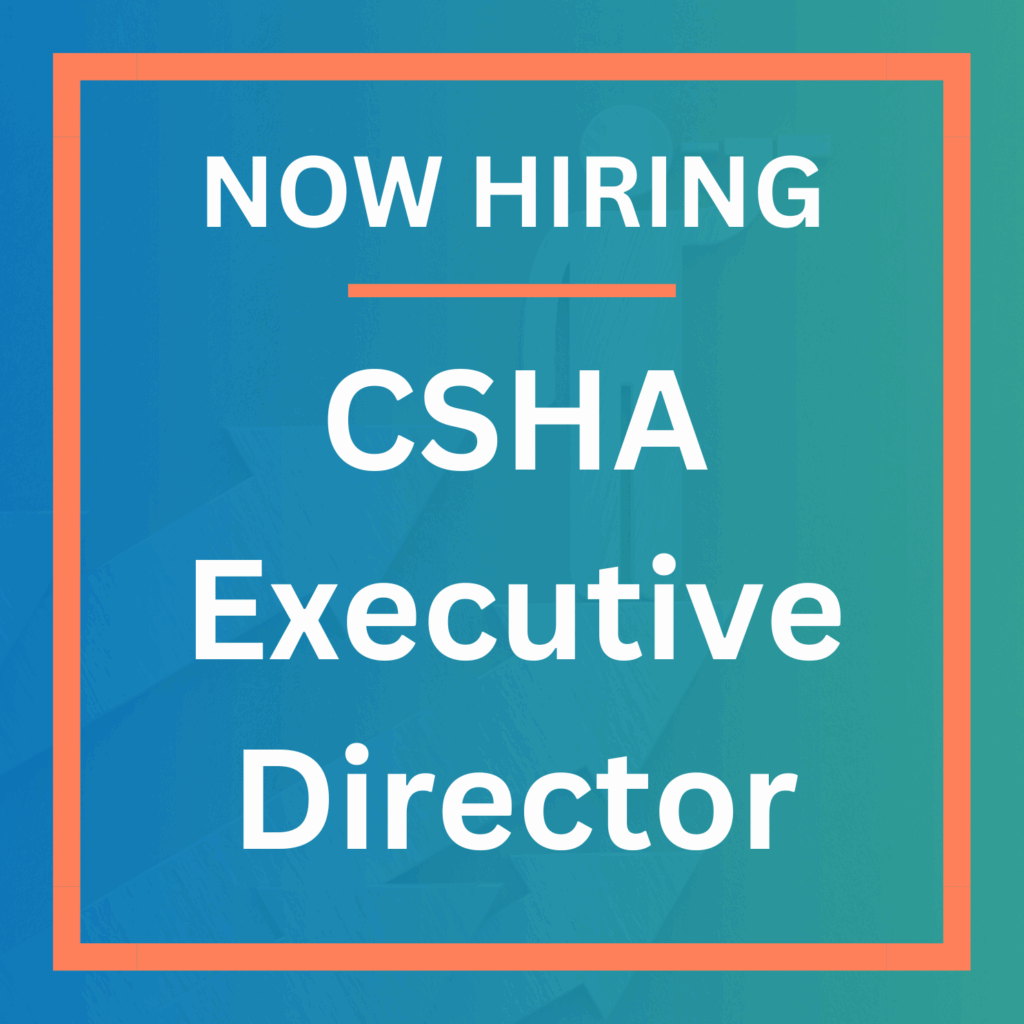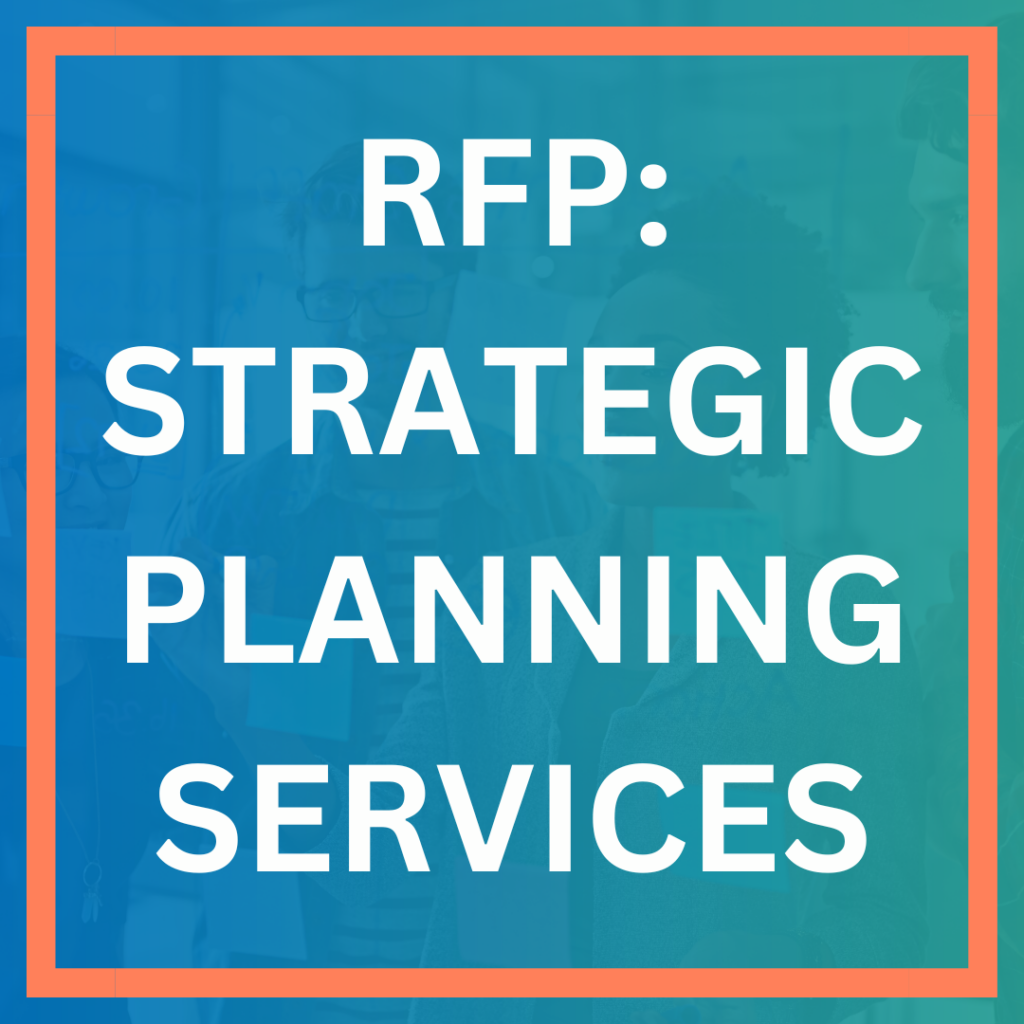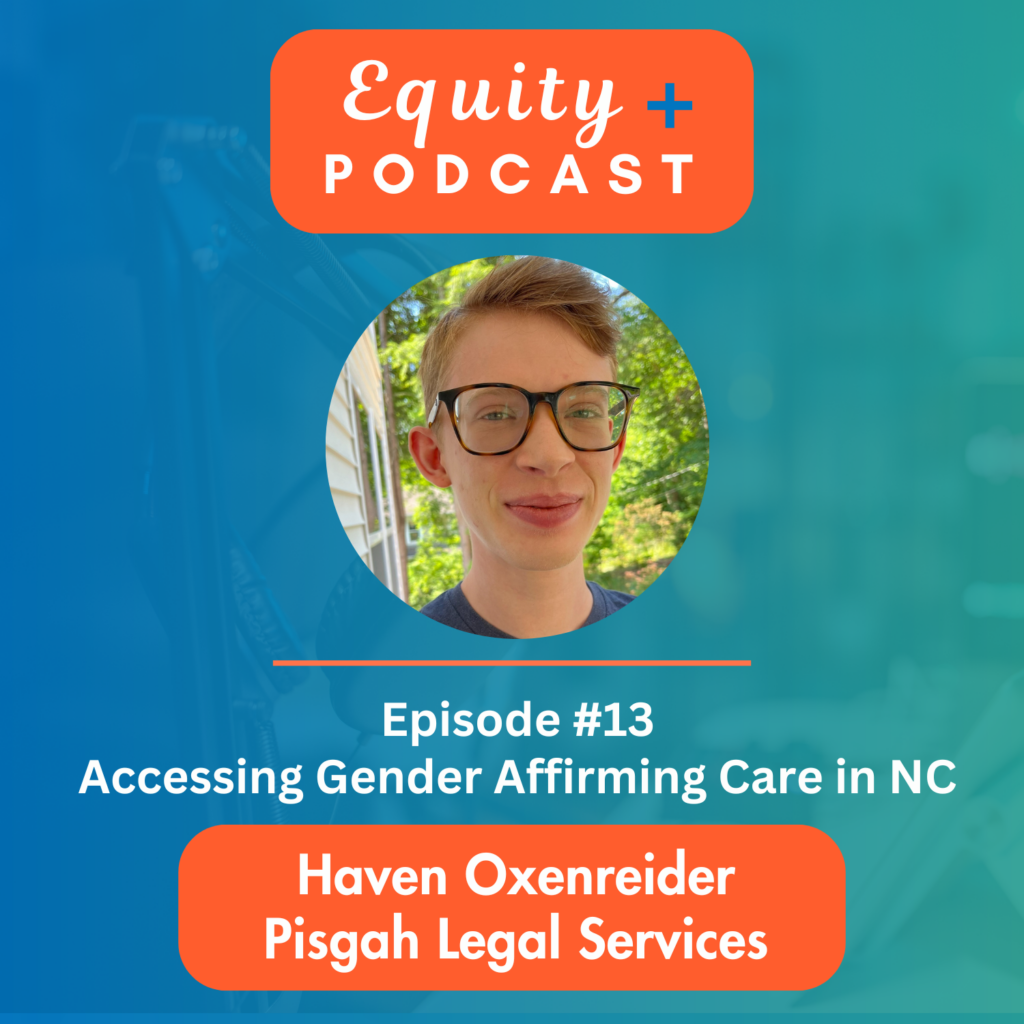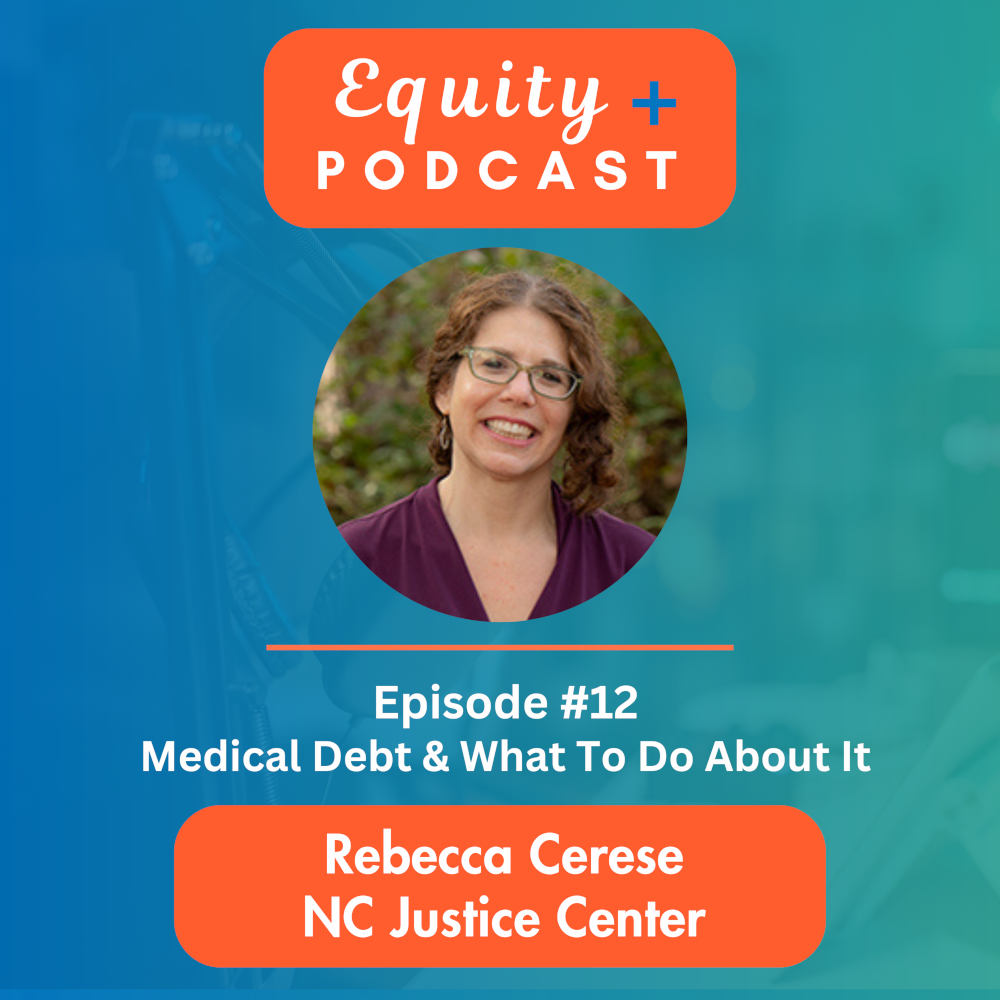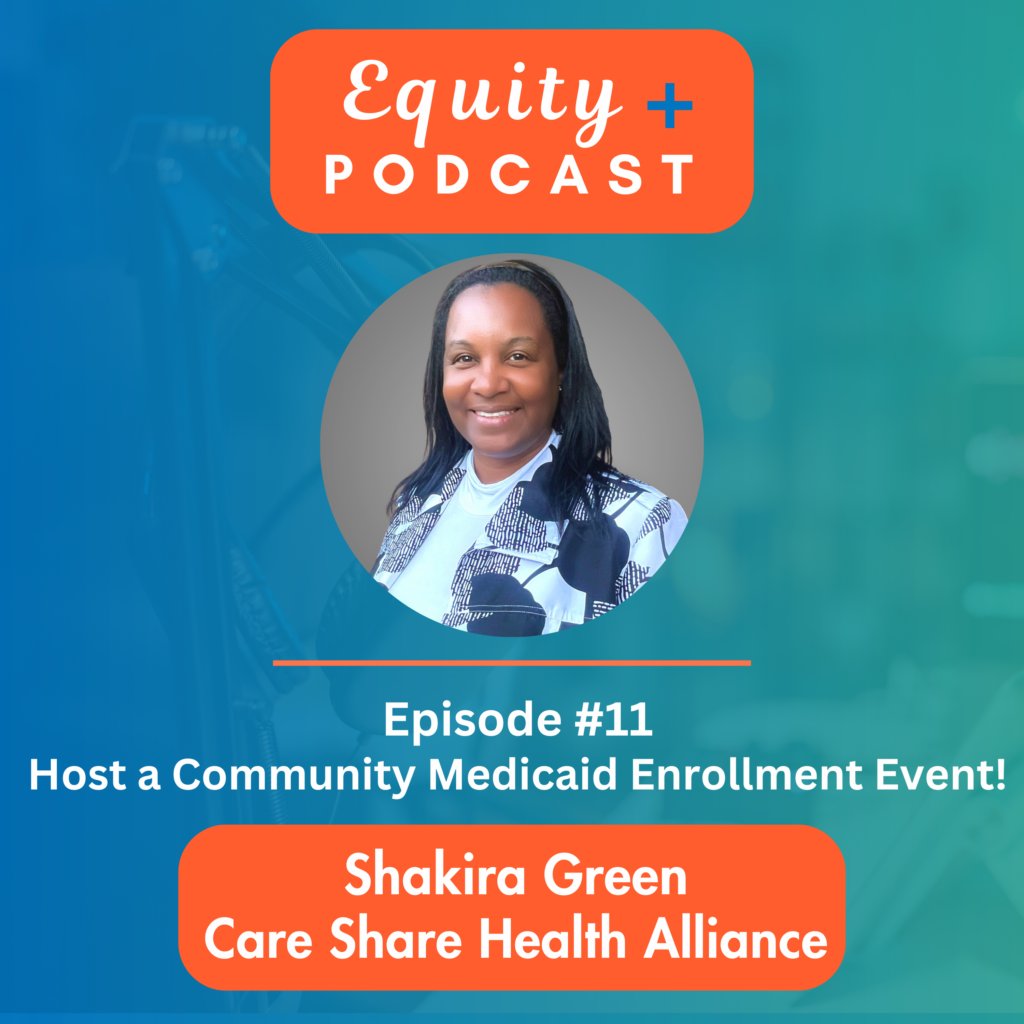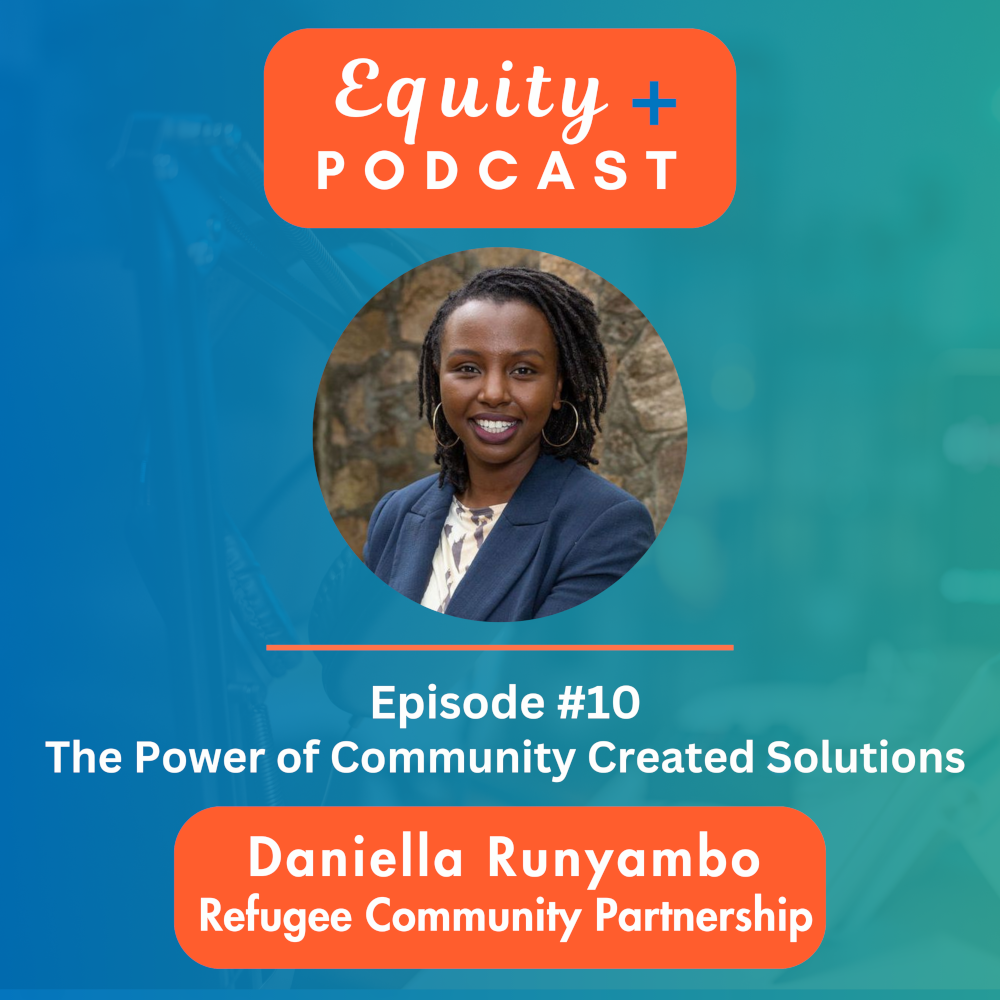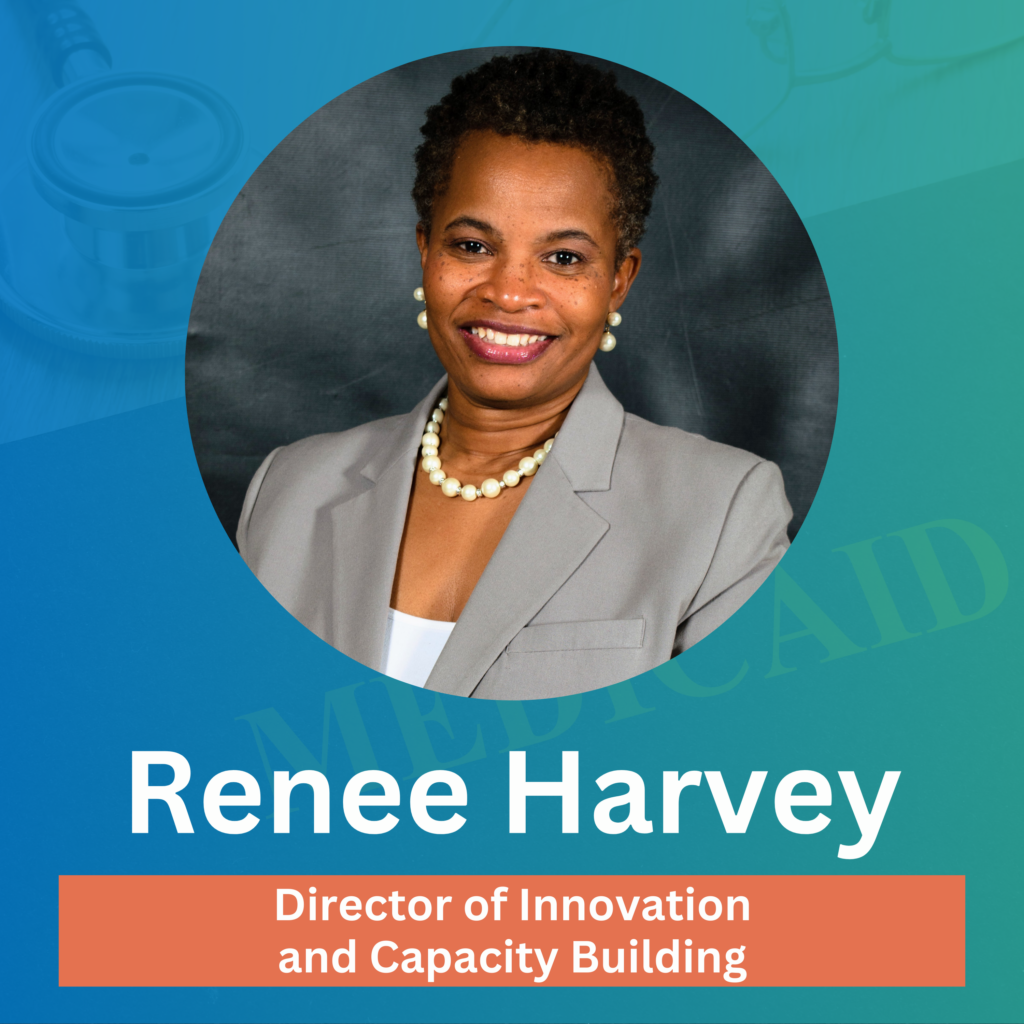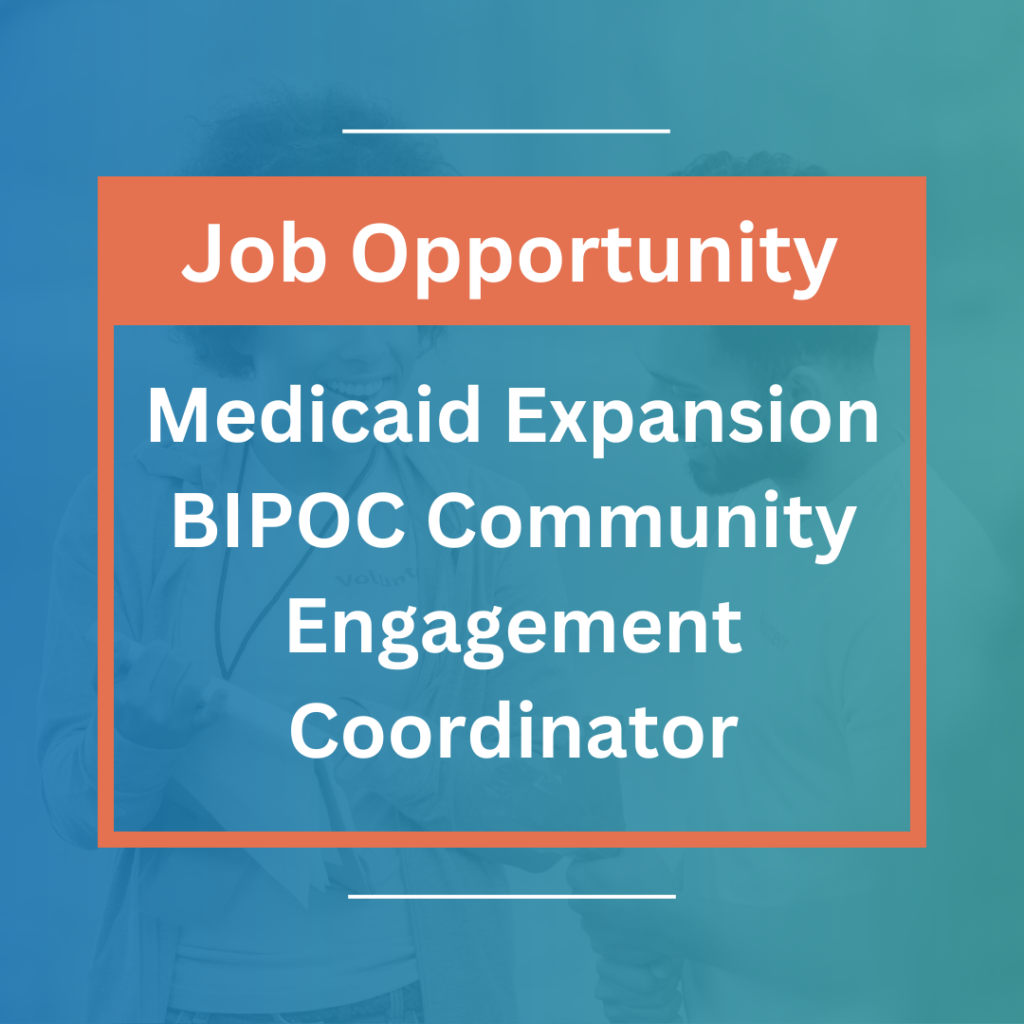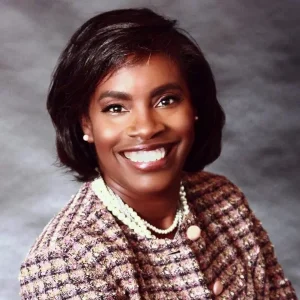 Rev. Dr. Dawn Baldwin Gibson still remembers when she was only four years old sitting at a nurse’s station in the hospital, while her mother was visiting with Gibson’s father, who was dying of pancreatic cancer.
Rev. Dr. Dawn Baldwin Gibson still remembers when she was only four years old sitting at a nurse’s station in the hospital, while her mother was visiting with Gibson’s father, who was dying of pancreatic cancer.
“So much of the work that I do around health equity comes from that very early knowledge of how important healthcare access is.” Says Gibson.
Her father had been with DuPont in Wilmington, NC for many years, but when he got too sick to work, he was fired, and with that lost his health insurance. He died within months of his diagnosis, at just twenty-nine years old.
Gibson believes her father did not receive the kind of care he should have to help fight his disease.
“They said it was the flu. I don’t know that they really even took it really seriously,” she says.
It was a stark contrast to the care received by her mother, who was diagnosed with ovarian cancer years later in the 90s, and had access to health insurance.
“She had the ability to get that good care. And so now she’s been cancer free for 20 plus years,” says Gibson. “I think that those are the early memories that stay with you, of how important healthcare is, how important early detection is, all of those things. All of those memories still remain with me.”
Gibson has gone on to use those memories to inform the work in the organizations she’s founded with her husband, Pastor Anthony Gibson: Peletah Ministries, Peletah Institute for Building Resilient Communities, and Peletah Academic Center for Excellence, all located in New Bern, North Carolina.
“New Bern is as much home as home can be for me,” she says. It’s where her mother’s family is from, and Pamlico County where she and her mother settled after her mother worked on master’s degree at then Atlanta University in Atlanta, Georgia.
“We actually live on the farm that my grandfather purchased after his service in World War I. So my grandfather was born in 1891, and my mom is one of the folks that are still walking around who can say that her grandparents were actually enslaved.”
Although Gibson was born many years after her great-grandparents had passed away, she still heard stories about their experiences from her grandparents.
“The stories that my grandfather and my grandmother shared – they were just so impactful. The house that my mother lives in, my great-grandmother lived in that house. So there are these very significant connections that we have to the history of the land and the history of the community in which we live.”
As Gibson grew up, she went on to attain her BA in Liberal Studies from Shaw University, where her parents met. She continued her education at East Carolina University, where she received an MA in English, and later started working on a doctorate in higher education administration at George Washington University.
“And halfway through my program, I said, you know what? I think I want to be a Christian counselor.” So Gibson took the unusual step of changing her doctorate, and completed her PhD at Christian Leadership University in Christian counseling. There, her focus was on trauma and Adverse Childhood Experiences (ACEs) in children of color.
She shares that part of what influenced her to make such a major change had to do with a tragic experience she had while working as an instructor at Lenoir Community College, where one of her students was killed in what she describes as, “just a senseless act of violence”,
“I really felt like there were things that I wanted to give my time to, and that administration in that sense might not be where my passion was,” she recalls. “I think that particular situation of violence really began to change my focus.”
Gibson also credits another, this time positive, experience with changing the trajectory of her work. At the time, she was working as a Community Response Coordinator with Easter Seals UCP, which sent her to a conference where one of the speakers was Dr. Vincent J. Felitti.
Felitti originated the research showing certain traumatic experiences and environments in early life, known as Adverse Childhood Events (ACEs) can have lasting, negative effects on a person’s health, well-being, and life opportunities, such as education and job potential.
Gibson – who admits she had attended the conference essentially because that’s just where her job sent her – recalls standing against the back wall of the packed ballroom where Dr. Felitti spoke, “That day, it changed my life and it changed the focus of my work in a way I could never have anticipated.”
The extensive work Dr. Gibson now helps lead at Peletah Ministries is sensitive to trauma in all areas. “Peletah is a Hebrew word for great deliverance,” she explains,” It’s holistic; not in just one area, it’s in every part of your life.“
This also involves early childhood intervention, through the Peletah Academic Center for Excellence, where Dr. Gibson, who has over 25 years of teaching experience, serves as Superintendent. PACE is a culturally competent, trauma-informed, grief-sensitive Pre-K-12 school that provides both academic and social-emotional learning, as well as wraparound services for students’ families, such as access to a social worker and case managers if additional support is needed.
“I was always really interested in this area of education and how children, especially children of color, show up in classrooms, and the importance of education, the importance of the community, and the importance of these wraparound services,” says Gibson, “My Master’s degree concentration was technical and professional communications, but I did my thesis work around culturally responsive pedagogy as it relates to African American males as a learning discourse community.”
At P.A.C.E. Mondays through Wednesdays are strict academic days, Thursdays are dedicated to health and wellness and Fridays to place-based education.
“It is really about giving our scholars opportunities to create, develop, and thrive, on these health and wellness days,” Gibson says. “We have a dietician, we have a social worker, we have a clinician, and they are all doing different projects on Thursdays and Fridays for our scholars.”
As part of her work as Executive Pastor at Peletah Ministries, Dr. Gibson has also written a trauma-informed worship for her church, part of which includes keeping worship services private. Often, people say they can’t find Peletah’s church services aired on social media, but Gibson says that’s intentional. She makes a comparison to HIPAA, a law healthcare providers must follow to protect patients’ privacy when receiving medical services:
“Is there not a spiritual HIPAA, that we have an obligation to protect people’s information unless it’s going to hurt them or hurt someone else?” Gibson asks. She talks about “toxic resiliency”, where individuals, especially in the Black community, are taught “what goes on in the house stays in the house”, and to put on a smile in public regardless of what they’re been through, or are going through.
Gibson also references Post Traumatic Slave Syndrome, a theory that the experience of slavery in the United States and the continued discrimination and oppression endured by Black Americans creates intergenerational psychological trauma.
“So much of the work for my doctorate I did around post-traumatic slave syndrome,” she says, “When we think about trauma and its impact – the brain is constantly either in this fight, flight or freeze posture, then you see high blood pressure, you see more incidents of heart palpitations and heart problems and diabetes. All of that is impacted by issues of underlying and ongoing trauma and toxic stress. Then you add in these different areas of poverty and the lack of health access. All of these are compounding factors that when people show up in a worship setting, they bring all that with them.”
Peletah also connects ministry with mental health services. “We’ve prayed for people at the altar and still made a referral to Crossroads psychiatric care facility,” says Gibson, “We’ve said ‘there are some other things that are going on here and we need to help you connect to a clinician.’”
Gibson is intimately familiar with how important access to mental health services is. In 2016, she suffered a tragic miscarriage at five months into her pregnancy with her daughter, Hannah Elizabeth. Her loss was only amplified by the treatment she received when she sought medical care.
During her pregnancy, Gibson suffered from uterine fibroids, which are more likely to occur in Black women like herself. The fibroids were so severe that at 5 months pregnant, Gibson’s abdominal circumference measured the same as if she had been nine months. Her daughter was literally being pushed out by the fibroids, causing Gibson to go into premature labor.
However, when she went for help at the ER, she was discharged while still in active labor, although she didn’t know it. Later that night she was rushed back to the hospital by paramedics after she had given birth to her daughter at home.
“Hannah died probably about 45 minutes after her birth.” Remembers Gibson, “I had a vaginal birth and they sent me home within an hour.”
She and her husband went home that morning and planned Hannah’s burial. Two weeks later Gibson attempted suicide.
Thankfully, she survived and was able to receive mental health services to help her deal with her loss at Crossroads Psychiatric Care Facility in New Bern, the same organization where she will now refer members of her congregation.
“That is the reason why I am probably one of their biggest advocates,” she says, “ Because I understand that when your serotonin level is off, it is off.”
She also describes the hesitancy many people in her community have toward addressing mental health issues, as opposed to seeking other healthcare services, “When my mother was diagnosed with ovarian cancer, people said, ‘you gotta get over to the Leo Jenkins Cancer Center in Greenville.’ We actively did it. But when people talk about mental health struggles, that something chemically is happening in the brain, we kind of, well – we can’t do that.”
That mindset, and Gibson’s own experience, has helped inform Peletah’s SHELL program, which helps other African American clergy in eastern North Carolina access culturally appropriate mental health counseling. It was developed by Gibson and her husband, Anthony – who has extensive experience in the mental health field – as a response to the emotional toll the COVID-19 pandemic was taking on pastors and lay leaders in Black churches.
“We are serious about changing how our communities have thought about mental health services.” She says. “We’re continuing to do that work because of the impact that Covid has had on our communities, on our mental health, on our ability to process effectively what grief is, what loss is. It is something that is going to be with us for decades, and we are going to have to really look at how this is impacting our health and our wellbeing.”
The Peletah Institute, where Dr. Gibson serves as Executive Director, could be considered something of an expert on how to support communities through the effects of COVID-19. In fact, in the beginning days of the pandemic, they were in the very unique position of actually knowing what to do.
While institutions from the federal government to local clinics were struggling with how to reach everyday Americans with accurate information and, eventually, the vaccine, Peletah utilized a framework and network of connections they’d had in place from shortly after their church had opened, which happened to be just six weeks before hurricane Irene hit North Carolina.
“So very quickly we were doing disaster work,” Gibson recalls, “We were going around after Hurricane Irene and we saw all of this need. And what we now say is that whatever is in the community at the time of the disaster is only amplified by the disaster.”
In response, Gibson says they put together what they call their own “FEMAA” approach to help communities be resilient after disaster. Peletah Institute’s version of FEMAA stands for Food Access, Educational Recovery, Mental Health Support Resources, Affordable Health Care and Affordable Housing.
“And in the meantime, we ended up connecting with 300 plus churches across eastern North Carolina; that’s now grown above 500 churches that we’ve connected with so that when things are happening, we can get resources and information to them.”
“When Covid happened, we just did the same thing. We started up with those same churches just like it was a disaster; because it really was.”
She recalls during hurricane Florence, her community didn’t have internet access for weeks, so they relied on free conference call phone numbers to spread needed information.
“When Covid happened and people needed information, we just went back to those free conference calls. But the thing that we were able to do was that everybody had gotten these phones where they could see Facebook.”
So Peletah partnered with their local hospital to host “Vaccine 101” Facebook Lives.
“The first one we did was with State Health Director Betsy Tilson and some of the staff at the NC Department of Health and Human Services. They said, well, you get a hundred or 200 people to come on, and that will be great.”
But 200 people didn’t come – 12,000 did. Eventually, Gibson says, they ended up reaching hundreds of thousands of people through Facebook and other social media platforms, such as Instagram and TikTok.
Some of the platforms were not familiar to Gibson, but she put her trust in her staff to figure them out. “The staff just did such an amazing job,” she says. “There were so many different things they kept learning how to do and how to develop to reach different populations. It was all about making sure that people were getting factual information, and so we were really fortunate to continue to expand in that way.”
Peletah’s work providing accurate information and access to vaccines for African American seniors in their community even earned a shout-out from Surgeon General Dr. Vivek H. Murthy, as part of a White House COVID-19 Press Briefing in 2021.
“I still don’t know how it happened.” Gibson says, as no one had informed her that her organization would be mentioned by the Surgeon General, “But what we realized was that was the way to connect to people and make sure they were getting information.”
So, what was it that made Peletah so effective when so many other organizations struggled at the time? Gibson credits their success in both disaster relief and addressing COVID-19 to the fact Peletah Institute’s work is a direct response to the needs expressed by her community.
“It’s something about being in community, not assuming, not hearing part of what I want to hear, but hearing the whole matter,” Gibson explains. She describes a call she had with a mentor, who helped her understand the importance of community voice.
“One time I called her and I said, ‘we need to make all these changes and the people, they need this, this, this, this, this.’” The mentor allowed Gibson to say her piece, and then asked, “But what did the people say?”
“She said, ‘the wisdom is in the room’.” Gibson recalls, “And now I’ve kind of expanded what she taught me and say, the wisdom is in the community.”
Pelatah’s approach is not to assume what a community needs, but instead, Gibson explains, “We let them tell us what they need, and then figure out how we partner to support the infrastructure being built strong in this community.”
“We don’t need little Peletahs everywhere.” She says, “We need the people who have always been doing the work to be supported in a way where they can get the resources, they can get the funding, they can get the opportunities that they need for the communities where they’ve been doing this all along.”
 That work is done partly through the Eastern North Carolina Regional Church and Community Resiliency Collaboratives hosted by Peletah, which originated in the SHELL Program. SHELL stands for Safety, Hope, Efficacy, Lasting, and Linkage. Specifically, “Lasting, sustainable systems for building resilient communities” and ”Links to community partners.”
That work is done partly through the Eastern North Carolina Regional Church and Community Resiliency Collaboratives hosted by Peletah, which originated in the SHELL Program. SHELL stands for Safety, Hope, Efficacy, Lasting, and Linkage. Specifically, “Lasting, sustainable systems for building resilient communities” and ”Links to community partners.”
As a part of helping create sustainable systems and linking to community partners, Peletah organized a meeting of local pastors to share community needs. “Now we thought we probably have about 25 pastors show up, which was great for a Monday.” Recalls Gibson, “We had 154 show up.”
The attendees were appreciative of the information provided but wanted to communicate directly with governmental organizations that Gibson and her staff were working with. So Peletah brought together those organizations for the first ENC Church and Community Resiliency Collaborative in March of 2022.
As part of the event, a listening session with government officials was held, including the Director of Community Partnerships and Faith-Based partnerships for FEMA, the Director of the NC Office of Recovery and Resiliency, and NC Department of Health and Human Services Assistant Secretary for Equity and Inclusion.
There was also a “health equity room” where visitors could get COVID-19 vaccines, blood pressure checks, anxiety and depression screenings, and could talk to representatives from Medicaid managed care plan providers. Next door was an “intake room” with other services like housing assistance, clothing for job interviews, Legal Aid, Land Loss Prevention, and social service providers, in addition to 30 vendors sharing their services with the community. They also gave out over 300 boxes of groceries and fresh produce in partnership with Conetoe Family Life Center.
Gibson was expecting to have around 200 attendees, but, again, what was expected to be a relatively small event turned into something much more when nearly 700 people showed up. Due to the overwhelmingly positive response, the Resiliency Collaboratives have become a regular occurrence.
“We have another one coming up,” Gibson shares. The ENC Regional Church and Community Holiday Resiliency Collaborative will take place on Monday, December 12, 2022 at the New Bern Riverfront Convention Center.
“We have more than 80 vendors. We’re excited that the hospital will be doing COVID-19 vaccines. We’ll have ACA open enrollment opportunities,” says Gibson, “All of our Medicaid managed care providers will be on site. We’ll have lots of free health screenings. We’ll have 500 food boxes, and Toys for Tots ( which requires pre-registration.)”
With everything her organization is doing, and all of the roles Dr. Gibson has at Peletah, one wonders how she has time to sleep. However, she says that she makes self-care a priority, both for herself and those she leads.
“Our staff come with a lot of their own knowledge, skills, and education to this work. It is a lot that they carry and it’s a lot that we’re doing. We recognize how important it is, but we also recognize how important it is to get rest for self-care.”
“Self-care is not being selfish,” says Gibson, “It is being mindful of how important it is to care for yourself. You cannot pour from an empty cup.”“Let’s refocus from wrong to strong.“
For more information on Peletah’s work, including the upcoming NC Regional Church and Community Holiday Resiliency Collaborative you can visit peletah.org or follow their social media:
https://twitter.com/PeletahMinistry
https://www.instagram.com/peletahministries/
https://www.facebook.com/peletahministries
